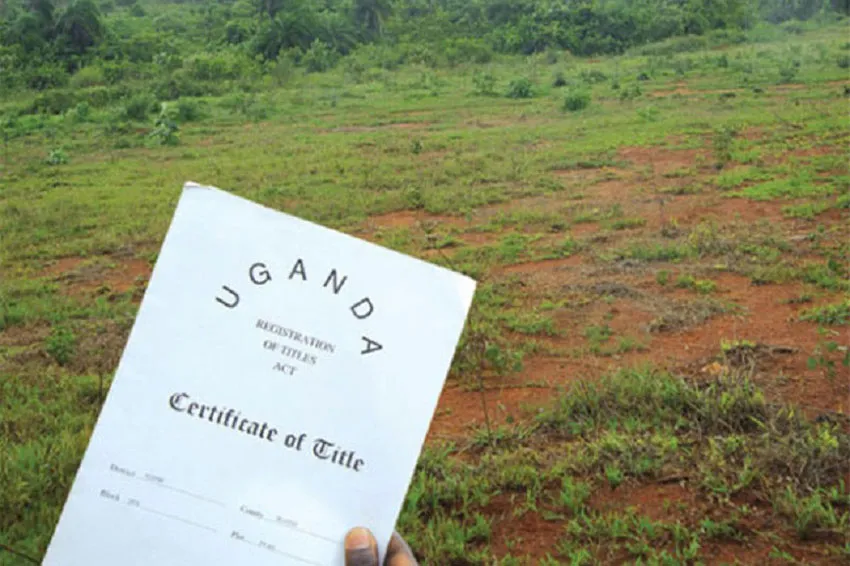Blog
Understanding Land Transactions in Uganda

Land ownership and transactions in Uganda are governed by a complex legal framework, and understanding this framework is crucial for anyone looking to buy, sell, or lease land. Below is a comprehensive guide to help you navigate land transactions confidently and legally.
1. Types of Land Ownership in Uganda
Uganda recognizes four land tenure systems under the 1995 Constitution and the Land Act (1998):
- Customary Tenure: Governed by customs and traditions, often without formal documentation.
- Leasehold Tenure: Land ownership for a specific period, often granted by the government or private owners.
- Freehold Tenure: Absolute land ownership, allowing the owner perpetual rights over the land.
- Mailo Tenure: Land ownership with rights over land but restrictions on the rights of occupants, particularly tenants.
2. Key Steps in a Land Transaction
a) Conducting a Title Search
- Visit the Ministry of Lands, Housing, and Urban Development or local district land offices.
- Verify the authenticity of the land title to ensure the seller is the rightful owner and confirm any encumbrances, such as mortgages or disputes.
b) Obtaining Consent
- Depending on the land tenure system, you may need consent from specific authorities, such as district land boards, cultural leaders, or the Uganda Land Commission.
c) Surveying the Land
- Engage a licensed surveyor to identify boundaries, avoid overlaps, and ensure the land is free from disputes.
d) Drafting and Signing a Sale Agreement
- Draft a legally binding sale agreement, clearly stating the terms of the transaction. Always involve a lawyer to ensure compliance with Ugandan laws.
e) Paying Stamp Duty
- Pay the requisite stamp duty to the Uganda Revenue Authority (URA) as part of the registration process.
f) Registering the Land
- File for transfer of ownership at the Ministry of Lands. Once the transfer is completed, the buyer will be issued a new title deed.
3. Common Challenges in Land Transactions
- Fraudulent Titles: Scammers may present fake titles; always verify at official land offices.
- Boundary Disputes: Conflicts with neighbors can arise from unclear boundaries.
- Customary Ownership Issues: Difficulty in formalizing transactions under customary tenure due to lack of documentation.
- Multiple Claims: Land may have multiple claimants, leading to prolonged disputes.
4. Role of a Lawyer in Land Transactions
A lawyer plays a vital role by:
- Conducting due diligence on land titles.
- Drafting and reviewing legal agreements.
- Guiding you through the registration and transfer process.
- Resolving disputes, if any, during or after the transaction.
5. Rights and Responsibilities of Landowners
As a landowner, you have the right to:
- Possess, use, and transfer the land.
- Develop the land in accordance with zoning laws.
You also have the responsibility to:
- Respect the rights of tenants and occupants.
- Pay property taxes where applicable.
6. Tips for Safe Land Transactions
- Always deal with the registered landowner.
- Use licensed surveyors and lawyers.
- Keep records of all payments and correspondence.
- Avoid cash transactions; use traceable payment methods.
- Insist on official documentation at every stage of the transaction.
7. Frequently Asked Questions (FAQs)
Q: Can foreigners own land in Uganda?
A: Foreigners cannot own freehold land in Uganda but can lease land for up to 99 years.
Q: How long does it take to complete a land transaction?
A: The timeline varies but can take 2-6 months depending on the complexity of the transaction and government processes.
Q: What happens if there’s a dispute after the transaction?
A: Engage a lawyer or mediator to resolve disputes. You may also seek redress in court.
Conclusion
Understanding Uganda’s land laws and following the right procedures is crucial for secure and lawful land transactions. With the right guidance from legal experts, you can avoid common pitfalls and protect your investments.
For personalized assistance with land transactions, contact Ekima Advocates today. Let us help you navigate the complexities of land ownership with confidence.
Related Posts
Estate Planning Essentials: Protecting Your Legacy
-
Posted by
Ekima
- 0 comments
The Impact of Technology on Legal Practice in Uganda
-
Posted by
Ekima
- 0 comments
When it’s about controlling hundreds of articles, product pages for web shops, or user profiles in social networks, all
Starting a Business in Uganda: Legal Requirements and Compliance
-
Posted by
Ekima
- 0 comments
Top 5 Mistakes to Avoid When Signing Contracts
-
Posted by
Ekima
- 0 comments
Understanding Your Rights as an Employee in Uganda
-
Posted by
Ekima
- 0 comments
Steps to Take After Receiving a Court Summons
-
Posted by
Ekima
- 0 comments






